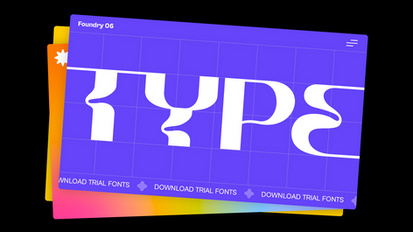Getting Started with Random Number Generator Website
The Benefits of Random Number Generator Website
Random Number Generator Website
In this modern digital age, having a professional and user-friendly website is crucial for any small business looking to attract customers and generate leads. However, hiring a professional web designer can be costly, especially for small businesses with limited budgets. This is where website builders come in handy. Website builders are tools that allow users to create websites without any coding or technical skills. There are many options available, but finding the best free website builder for small businesses can be a daunting task. To help you make an informed decision, we have compiled a list of the top free website builders for small businesses.

Getting Started with Random Number Generator Website
Random Number Generator Website
Web hosting providers offer various types of hosting plans and services to accommodate the needs of different websites. From shared hosting to dedicated servers, there are several options available for individuals and businesses looking to host their websites online.
Shared hosting is the most popular and affordable type of web hosting. With shared hosting, multiple websites are hosted on the same server, sharing its resources such as CPU, RAM, and storage space. This type of hosting is ideal for small websites with low to moderate traffic. However, shared hosting may not be suitable for websites that require high performance or resource-intensive applications.
VPS hosting, or Virtual Private Server hosting, is a step up from shared hosting. With VPS hosting, websites are hosted on virtual servers that mimic dedicated servers. Each website on a VPS server has its own dedicated resources, such as CPU, RAM, and storage space. This type of hosting is ideal for websites that require more control and flexibility but do not need a dedicated server.
Dedicated server hosting is the most powerful and expensive type of web hosting. With dedicated server hosting, websites have their own physical server dedicated solely to their needs. This type of hosting offers maximum performance, security, and customization options. Dedicated server hosting is ideal for websites with high traffic volumes, e-commerce websites, and large enterprises.
Cloud hosting is a relatively new type of web hosting that utilizes cloud computing technology to host websites on virtual servers. With cloud hosting, websites are hosted across multiple servers, providing scalability and flexibility. Cloud hosting is ideal for websites that experience fluctuating traffic levels or require high availability and uptime.
Managed hosting is a type of hosting service in which the web hosting provider manages and maintains the server infrastructure for the website owner. With managed hosting, users do not have to worry about server maintenance, security updates, or technical issues. This type of hosting is ideal for users who do not have the technical expertise or resources to manage their own servers.
There are several factors to consider when choosing a web hosting provider, such as reliability, speed, security, scalability, and customer support. Reliability is critical for ensuring that your website is always accessible to visitors. Speed is crucial for providing a positive user experience and improving search engine rankings. Security is essential for protecting your website from cyber threats and data breaches. Scalability is important for accommodating the growth of your website and handling increases in traffic. Customer support is vital for assisting with technical issues and ensuring that your website remains online and operational.
In addition to hosting services, web hosting providers often offer additional features and services, such as domain registration, website builders, one-click installation of applications, SSL certificates, email hosting, and backup services. These additional features can enhance the functionality and security of your website and simplify the management of your online presence.
Importance of Web Design
First impressions matter, and in the digital age, your website is often the first point of contact between your business and potential customers. A poorly designed website can deter visitors, leading to high bounce rates and lost opportunities. On the other hand, a well-designed website can capture the attention of users and keep them engaged, ultimately driving conversions and fostering customer loyalty.
In addition to aesthetics, web design also plays a crucial role in user experience. A website that is easy to navigate, with clear navigation menus and intuitive layouts, can help users find the information they are looking for quickly and efficiently. This can lead to higher engagement and increased time spent on the site, which can translate into higher conversions and sales.
Furthermore, web design can also impact search engine rankings. Search engines like Google prioritize websites that are well-designed, mobile-friendly, and optimized for speed and performance. By following best practices in web design, you can improve your website’s visibility in search results and attract more organic traffic.
Tips for Effective Web Design
Now that we have established the importance of web design, let’s discuss some tips for creating an effective website:
1. Define Your Goals: Before starting the design process, it’s essential to clearly define your goals and objectives for the website. What do you want to achieve with your website? Are you looking to drive sales, generate leads, or increase brand awareness? By understanding your goals, you can tailor your website design to meet those objectives.
2. Know Your Audience: Understanding your target audience is crucial for creating a website that resonates with your visitors. Consider factors such as demographics, preferences, and behaviors to tailor the design and content of your website to meet their needs and expectations.
3. Keep it Simple: Clean and minimalist designs tend to perform better than cluttered and busy layouts. Keep the design simple and focus on highlighting essential information and calls-to-action. Avoid using too many colors, fonts, and graphics that can overwhelm users and distract from the main message.
4. Mobile Optimization: With more and more users accessing websites on mobile devices, it’s crucial to ensure your website is optimized for mobile responsiveness. A mobile-friendly design will provide a seamless browsing experience across all devices and improve user engagement and retention.
5. Use High-Quality Images and Graphics: Visual elements play a significant role in web design, as they can help capture the attention of users and convey your brand message effectively. Utilize high-quality images and graphics that are relevant to your content and align with your brand identity.
6. Clear Navigation: Easy navigation is essential for helping users find their way around your website. Use clear and intuitive navigation menus, breadcrumbs, and internal linking to guide users to relevant pages and improve their overall browsing experience.
7. Loading Speed: Slow loading times can frustrate users and lead to high bounce rates. Optimize your website for speed by compressing images, minifying code, and utilizing caching mechanisms to enhance performance and provide a seamless browsing experience.
8. Test and Iterate: Once your website is live, it’s essential to continuously monitor its performance and gather feedback from users to identify any areas for improvement. Conduct A/B testing, analyze user behavior, and make iterative changes to optimize your website for better results.

Random Number Generator Website
Random Number Generator Website
In conclusion, designing a website layout template is a crucial step in creating a successful website. By considering factors such as the overall structure of the site, the placement of elements, the use of white space, and the responsive nature of the design, you can create a layout that is visually appealing, easy to navigate, and user-friendly. Experiment with different layouts and elements to find the one that works best for your site, and don’t be afraid to make changes as needed. With a well-designed layout, you can create a website that engages users and keeps them coming back for more.


